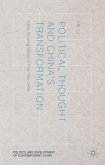Drawing on theories of neo-institutionalism to show how institutions shape dissident behaviour, Boucek develops new ways of measuring factionalism and explains its effects on office tenure. In each of the four cases - from Britain, Canada, Italy and Japan - intra-party dynamics are analyzed through times series and rational choice tools.
'Boucek makes an important contribution to explaining the politics of single-party dominance by integrating consideration of both inter- and
intra-party politics. By challenging the unitary actor assumption of
inter-party accounts, she offers a fuller picture of both the maintenance and the decline of single-party dominance. She highlights the importance of institutional incentives and electoral market conditions in shaping the behaviour of factions within a dominant party, and hence its ability to maintain its dominant position.'
- Professor Richard S. Katz, Department of Political Science, The John Hopkins University
'Boucek's study provides a new benchmark for the analysis of how political parties really operate. Its rich comparative analysis of the dynamic relationship between factionalism and party dominance opens new windows into understanding the importance of intra-party organization and life in structuring competitive democratic politics.'
- R. Kenneth Carty, Professor of Political Science, The University of British Columbia
'Why are dominant parties so factionalized, and with what consequences?, This is the crucial question at the core of this original study of political parties in power for extended periods. Combining elements of rational choice and historical institutionalism and investigating four major cases in Britain, Canada, Italy, and Japan, Françoise Boucek uncovers the paradoxical positive andnegative functions that factionalism performs and the variables that affect stability and change in these parties. A truly creative, systematic and ground-breaking addition to the literature on political parties.'
- Professor Ellis S. Krauss, School of International Relations and Pacific Studies, University of California, San Diego
intra-party politics. By challenging the unitary actor assumption of
inter-party accounts, she offers a fuller picture of both the maintenance and the decline of single-party dominance. She highlights the importance of institutional incentives and electoral market conditions in shaping the behaviour of factions within a dominant party, and hence its ability to maintain its dominant position.'
- Professor Richard S. Katz, Department of Political Science, The John Hopkins University
'Boucek's study provides a new benchmark for the analysis of how political parties really operate. Its rich comparative analysis of the dynamic relationship between factionalism and party dominance opens new windows into understanding the importance of intra-party organization and life in structuring competitive democratic politics.'
- R. Kenneth Carty, Professor of Political Science, The University of British Columbia
'Why are dominant parties so factionalized, and with what consequences?, This is the crucial question at the core of this original study of political parties in power for extended periods. Combining elements of rational choice and historical institutionalism and investigating four major cases in Britain, Canada, Italy, and Japan, Françoise Boucek uncovers the paradoxical positive andnegative functions that factionalism performs and the variables that affect stability and change in these parties. A truly creative, systematic and ground-breaking addition to the literature on political parties.'
- Professor Ellis S. Krauss, School of International Relations and Pacific Studies, University of California, San Diego








